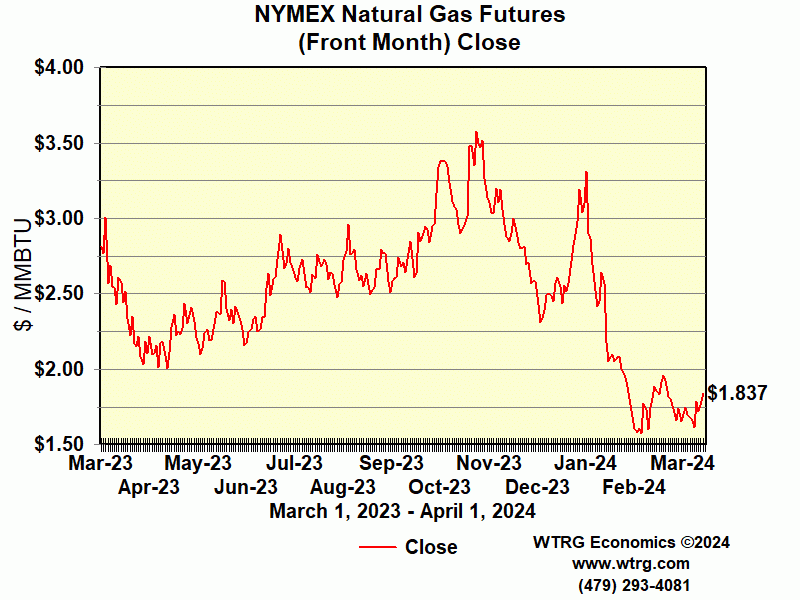Here's my second thread on outrageous electricity prices. Until now we've been on the month-to-month plan and were paying about $0.12/kWh. However, in the last three months, that has shot up to $0.187/kWh. This is primarily driven by an increase in the cost of natural gas, which is how most power in Texas is generated.
My question is, I can lock in a rate of $0.15/kWh for the next 12 months. However, if rates go down, I would have to pay $100 to break the contract. I have no way to predict natural gas prices but I wonder if they have peaked and will be coming back to earth shortly (see graph). On the other hand, they could easily continue to go up. Is it worth limiting my risk by locking in the rate, or will I end up regretting it in a few months?

My question is, I can lock in a rate of $0.15/kWh for the next 12 months. However, if rates go down, I would have to pay $100 to break the contract. I have no way to predict natural gas prices but I wonder if they have peaked and will be coming back to earth shortly (see graph). On the other hand, they could easily continue to go up. Is it worth limiting my risk by locking in the rate, or will I end up regretting it in a few months?

